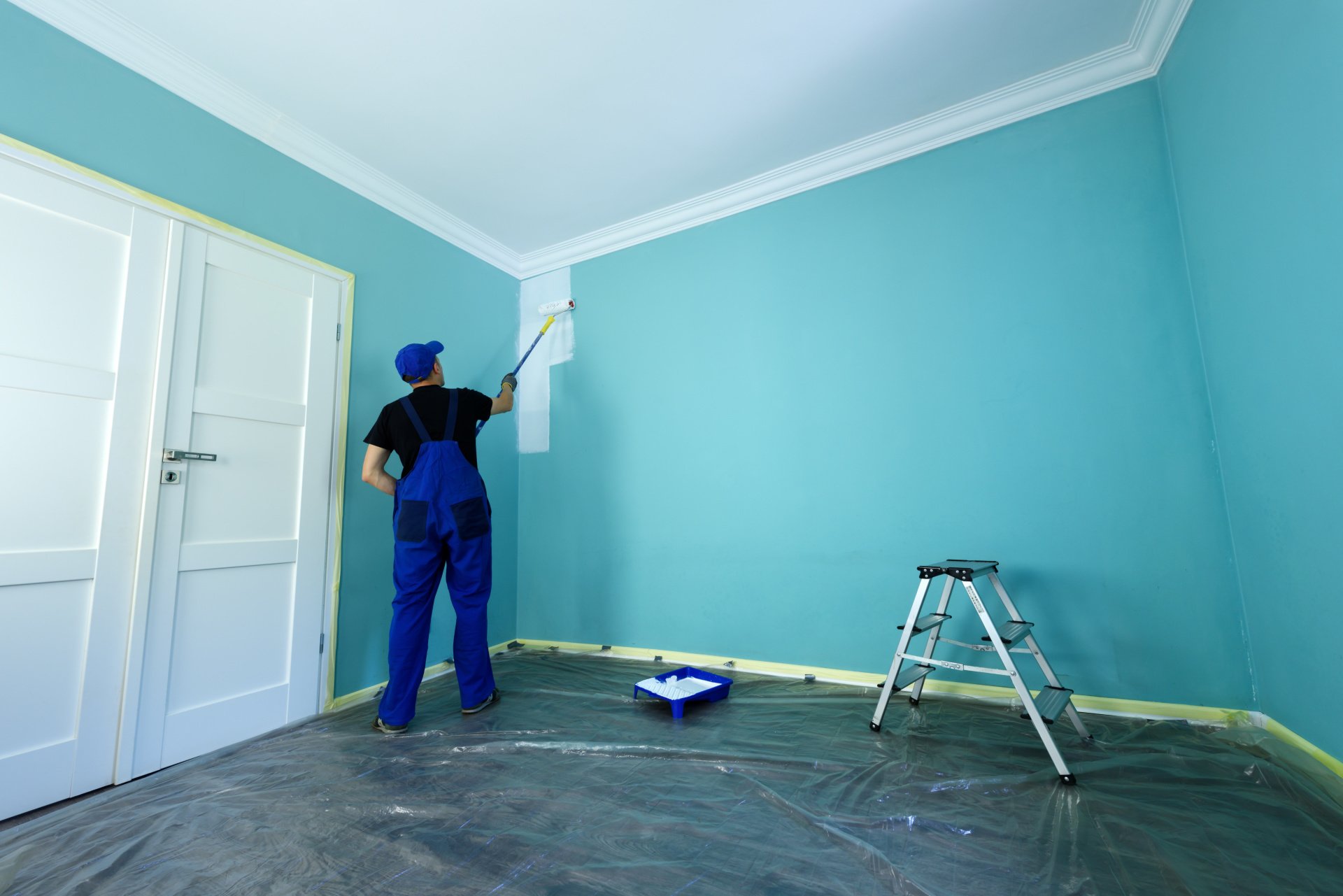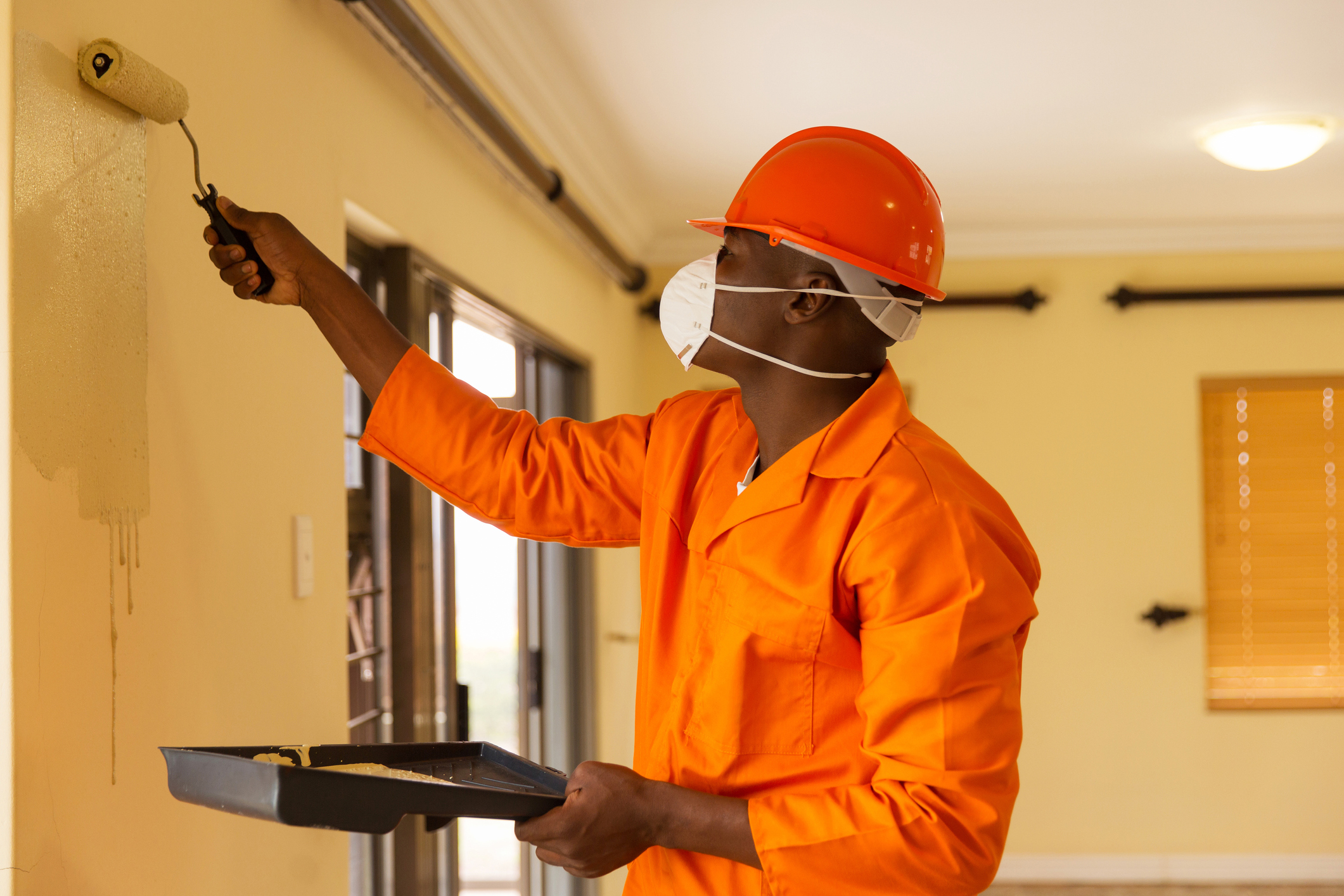
Are you sick of redecorating the same interior wall over and over again due to dirty hands? Have you ever found yourself thinking ‘what if I use exterior paint, indoors’? Well, before you take the plunge, read the information in this article.
It is true that exterior paint is naturally tougher against the forces of nature. Rain? Not a problem. Heat? Also not a problem. Wind… storm… snow… you name it, nothing will faze it. Back in the day, regular coatings were used on the outsides of homes. But homeowners were getting fed up with the constant damage and renovations. The weather can create chaos on a home if the right pain isn’t used.
So, outdoor paint was amplified with a weatherproofing, colour-lasting combination to make it last. Today, an average outdoor coating contains a recipe that can withstand all weathering and discolouring issues for a minimum of 10 years to an entire lifetime. All these reasons make using exterior paint would seem like the natural solution to these common issues, and whilst it can be done, there are some quite serious considerations you need to take into account.
The biggest of these concerns is:
Fumes
Paint fumes, otherwise known as Volatile Organic Compounds (VOC’s) is the main active chemical in outdoor coatings and can be extremely harmful if breathed in. This is far more likely when using an electric paint sprayer as it is released into the area as a mist, rather than applied directly to the wall. Unfortunately, this can’t be helped, it’s just the way sprayers work.

The Dangers of Paint Fumes
The purpose of VOC is to hold the pigment in the paint and to bind it to the surface it is attached to. So the quality and purpose of using an outdoor coating depend on this potentially harmful component. These fumes from VOC are not only bad for the environment, but they can be dangerous if inhaled by humans and animals. A few common symptoms of VOC inhalation can include lightheadedness, headaches, and nausea. People with weaker immune systems are more at risk to VOC’s harmful effects and may suffer from harmful respiratory effects.
Are There Ways to Mitigate These Dangers?
Here are two ways you can reduce the effects of dangerous paint fumes. The first is:
Make sure your area is properly ventilated: The number one risk factor in using outdoor paints is lack of ventilation. If the area you are working in is enclosed or lacks proper ventilation, then do not proceed with the project. The same goes for painting interior walls with regular emulsions and should be part of your preparation process, not left until after the job is complete.
Only if you are able to properly ventilate the area using multiple fans, open windows and doors, and breathing apparatuses, should you consider proceeding with using exterior paints indoors.
Also, it’s important to note that you should always keep the lid sealed as fumes can easily escape causing more harm. Once it dries, more fumes are also released into the air, so make sure you allow for quite a bit of time to ventilate the area after the job is done.
Pick the right type paint: Latex with a water-based formula are made naturally with smaller amounts of VOC. On the other hand, oil-based coatings carry much higher levels of VOC. Research the right type for your home and find out beforehand how strong the VOC level is by asking an expert at your local store, and checking the details online of what you are considering using.
So, at the end of the day, is it okay to use exterior paint inside?
When it comes to picking the right coating for the interior of your home, it can be much less of a headache in the long run by using a tougher, weatherproof paint. However, the fumes from doing so can cause you and your family serious harm if you don’t take the proper precautions beforehand.
Dangerous paint fumes can last for as long as six months in your home so it is crucial that you take the right steps in protecting yourself and your family before considering using exterior paint on the inside of your home. If you need more advice, or are looking to book expert painters to handle your next project, get in touch with the experts at Paint Central Florida today.











